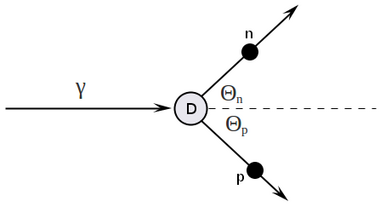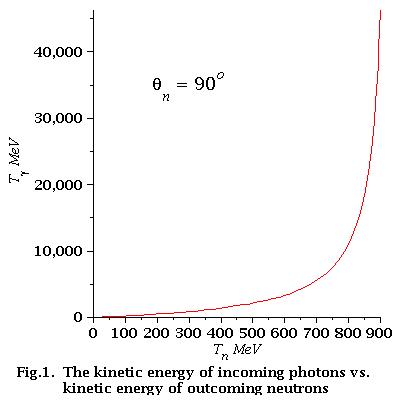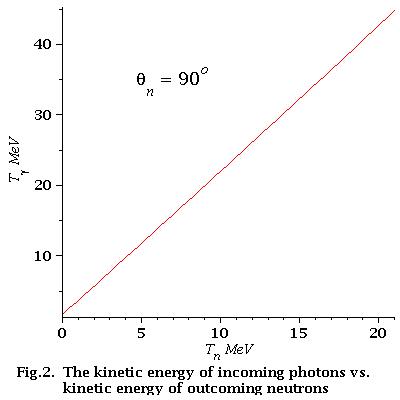Difference between revisions of "Neutron Polarimeter"
Jump to navigation
Jump to search
| Line 89: | Line 89: | ||
{| border="1" cellpadding="20" cellspacing="0" | {| border="1" cellpadding="20" cellspacing="0" | ||
|- | |- | ||
| − | |||
|detector distance | |detector distance | ||
|neutron energy | |neutron energy | ||
Revision as of 04:30, 17 June 2010
Analysis of energy dependence
four-vectors algebra
writing four-vectors:
Doing four-vector algebra:
Detector is located at , so
and visa versa
how it looks
low energy approximation
As we can see from Fig.2 for low energy neutrons (0-21 MeV)
energy dependence of incident photons is linear
Find that dependence. We have:
So, the equation of the line is:
Finally for low energy neutrons (0-21 MeV):
example of error calculation
example 1
Say, we have, 10 MeV neutron with uncertainty 1 MeV, the corresponding uncertainly for photons energy is:
example 2
Say, we have, neutron with time of flight uncertainly is 1 ns
The neutron's kinetic energy as function of the neutron's time of flight is:
And it follows, that neutron's kinetic energy error as function of the neutron's time of flight error is:
Also we need neutron time of flight as function of neutron kinetic energy:
Some results are:
| detector distance | neutron energy | time of flight uncertainty | neutron | neutron time of fligh | neutron absolute error | neutron relative error | photon absolute error | photon relatibe error |
| 1 m | 20 MeV | 1 ns | 4.79 cm | 75 cm | 7.49 cm |
So neutron uncertainty is:
absolute:
relative:
Corresponding photon uncertainty is:
absolute:
relative:



